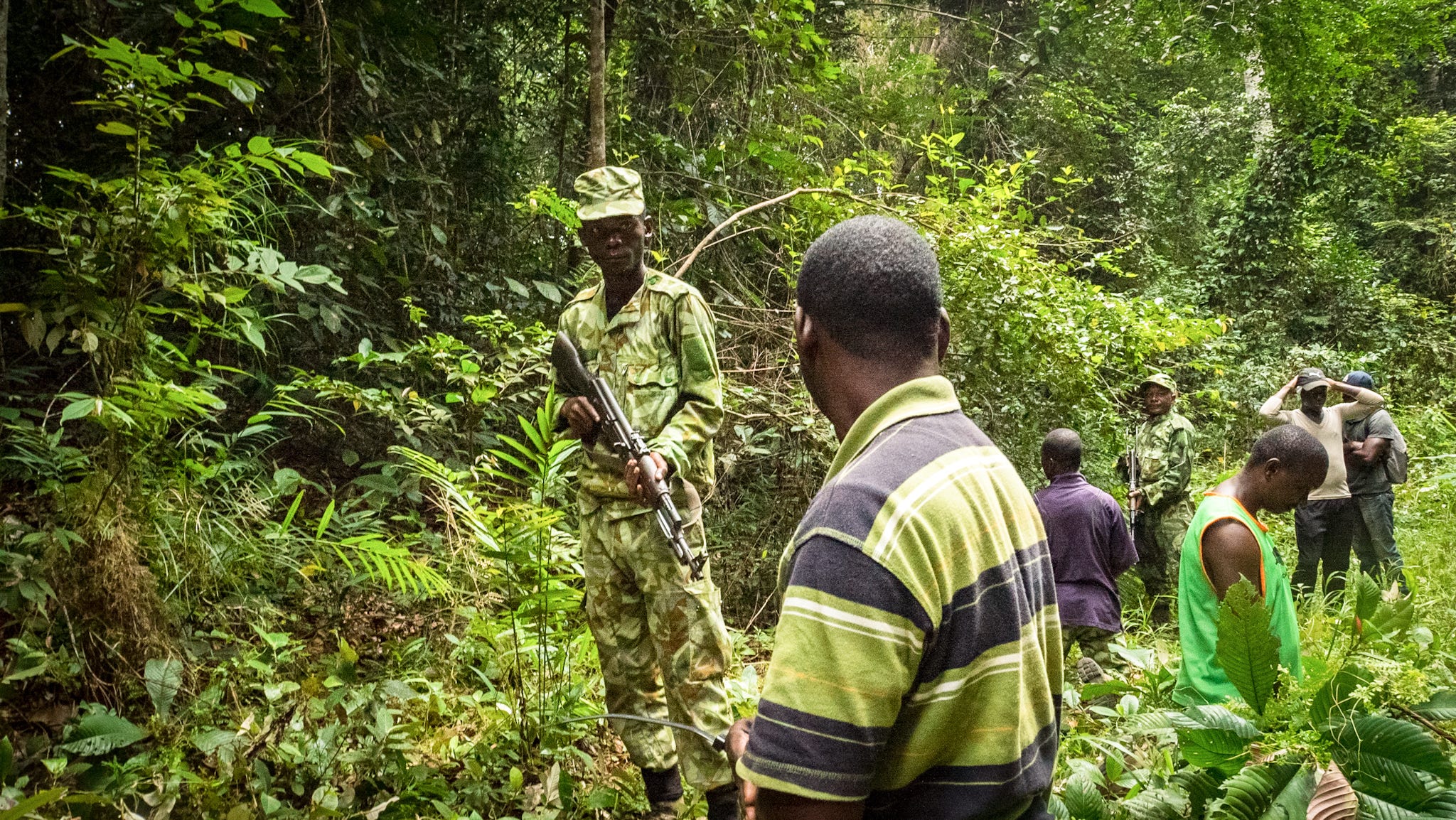Why the U.S. Military Is Training Park Rangers in the Jungles of West Africa
Gabon's elephant population is being decimated by poachers chasing ivory. Now these fearless rangers are on a hunt for the hunters.

Photos by Andy Jones | Edited by Michael Stahl
Picking through the dense jungle in Gabon, a small, equatorial country on Africa’s west coast, rangers close in on a camp of poachers preparing to slaughter the country’s precious forest elephants. Some 36,000 elephants have been killed in the country over the past ten years, around 80 percent of the total stock. Every elephant saved now is critical to this nation, each one not just a national symbol, but a potential tourist attraction for visitors on safari, which can help boost an economy that is flatlining.
Unfortunately, the elephants are sitting ducks for poachers. The enormous animals always use the same tracks, and leave a huge imprint on the jungle’s trees and branches, making them easy to follow. While the jungle itself does the elephants no favors, it provides plenty of cover for poachers to escape.
In stifling humidity, sweat runs in beads down each ranger’s face, their feet moving over branches and fallen trees in battered sn…
Keep reading with a 7-day free trial
Subscribe to Narratively to keep reading this post and get 7 days of free access to the full post archives.



